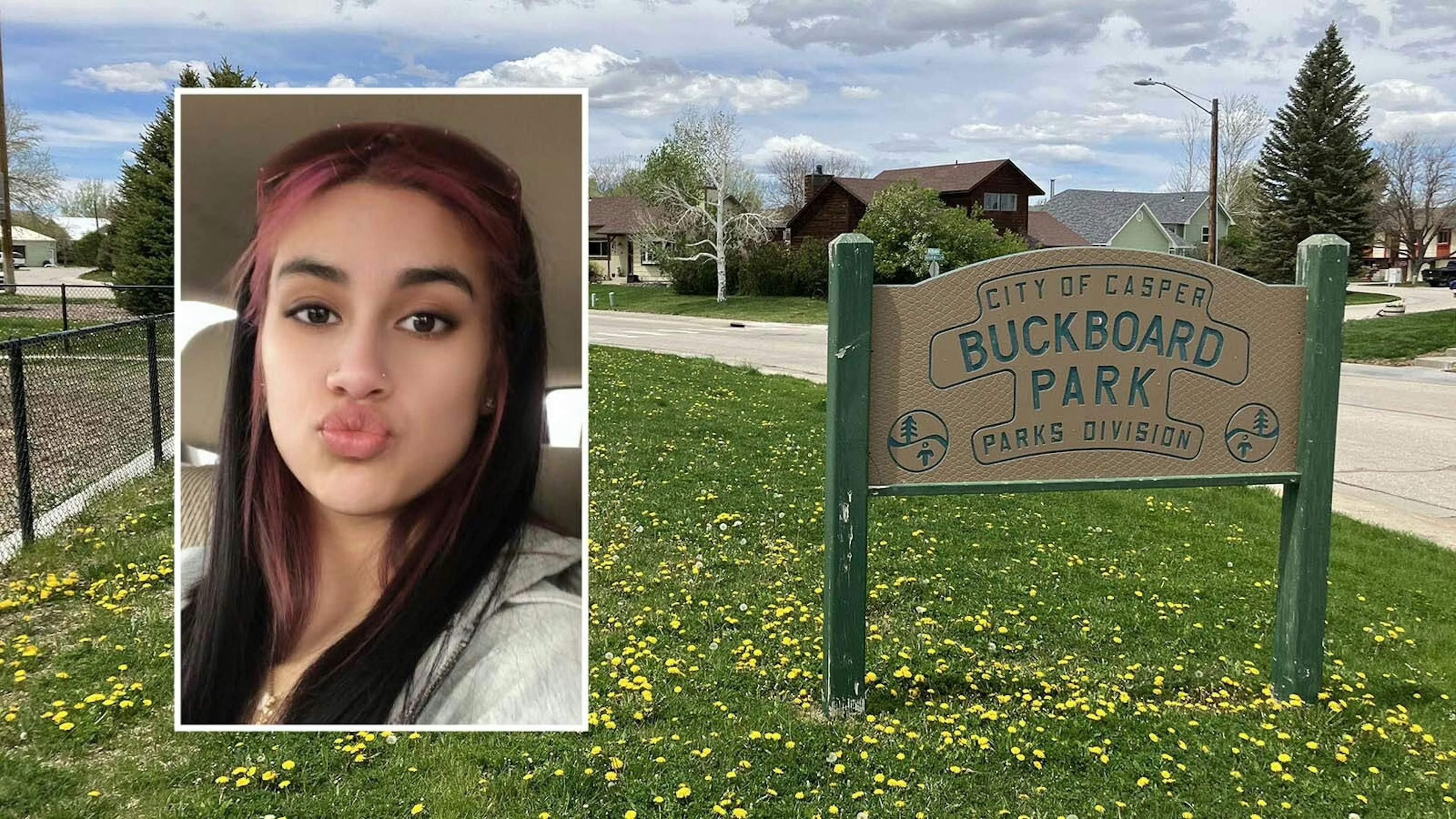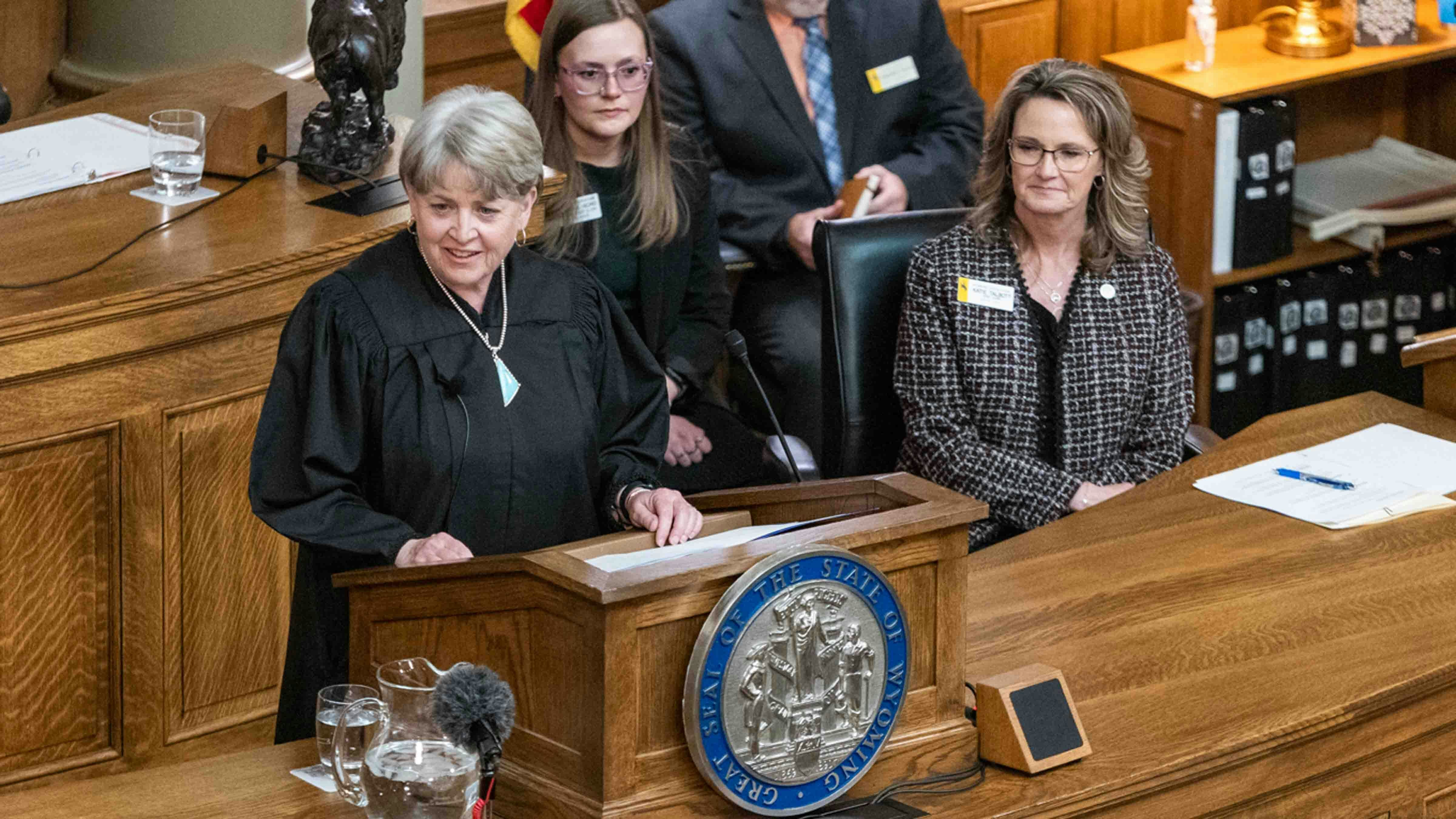A Sheridan man accused of punching a longtime hockey coach so hard it killed him is arguing that he acted in self-defense after the hockey coach first repeatedly punched and attacked him outside a rodeo this past summer.
Cody Joseph McCalla, 34, faces one count of involuntary manslaughter in the July 13 death of Patrick Mudd, 48. The charge is a felony punishable by up to 20 years in prison, plus the loss of gun, voting and other rights.
The charging affidavit says that the men had a dispute over a parking space July 12, in a lot near a rodeo in Sheridan. Witnesses said they heard Mudd tell McCalla to leave him alone, and they heard the sound of “knuckles hitting” something before watching Mudd fall to the ground, says the document.
Mudd’s girlfriend made a public statement after the fatality, saying McCalla was drunk and “sucker-punched” Mudd.
A self-defense petition McCalla’s attorney Ryan Wright filed Nov. 6 counters that with the eyewitness account of McCalla’s friend, who was also there. The petition claims Mudd started the fight and punched McCalla repeatedly, even when McCalla was on the ground.
The case judge, Sheridan District Court Judge Benjamin Kirven, may schedule a self-defense hearing to hear Wright’s side of the argument against the prosecutor’s. A date for that has not yet surfaced in the case file.
In More Detail Now
It was around 6 p.m. July 12, a Friday night, when McCalla picked up his friend and drove to the Sheridan WYO Rodeo.
McCalla spotted an open parking space on 5th Street near the Sheridan County Fairgrounds. The two men also noticed a black Ford Expedition stopped on the street that looked like it was dropping someone off in the road, says the filing, which draws from the friend’s account.
They saw an open parking spot behind an Expedition that was big enough for McCalla to park his pickup, so McCalla pulled into the spot.
The black Ford Expedition — driven by Mudd’s girlfriend — backed McCalla’s truck, cracking the plastic on the bottom of the front left bumper, says the filing.
The filing alleges that Mudd yelled expletives at McCalla and McCalla’s friend.
Retreating
McCalla and his friend retreated and found a different parking space farther from the rodeo, according to the filing. But as they walked toward the rodeo, they again encountered Mudd.
“Who were you calling (expletive)?” McCalla asked Mudd, according to the filing.
Mudd appeared angry and ready to fight, the filing says.
“Mr. Mudd grabbed Mr. McCalla’s shirt and began punching Mr. McCalla in the face,” the filing says, adding that the men kept fighting and stumbled into a small shed nearby, where Mudd “pressed Mr. McCalla against the shed with one hand and punched Mr. McCalla with the other hand.”
McCalla freed himself from the shed and Mudd followed him into the grass and kept punching him, knocking him to his hands and knees, the defender’s filing alleges.
The filing says McCalla got up and struggled against Mudd, who kept punching him, knocked him to the ground, and hit him some more.
Stop
The filing says McCalla’s friend pleaded for them to stop, and Mudd turned aggressively toward the friend.
“After severely beating Mr. McCalla, Mr. Mudd let him stand up,” the filing continues. “Mr Mudd was circling and approaching Mr. McCalla.”
McCalla questioned whether all this was necessary, from just a parking dispute, according to the filing.
Fearing he was going to be hit again, McCalla punched Mudd, says the filing. Mudd fell to the ground.
Some bystanders tried giving Mudd first aid, and they called for help.
McCalla and his friend had initially walked away from Mudd, but they then returned to Mudd and tried to help him, the document says, adding that Mudd’s girlfriend pushed them away.
First responders arrived and took Mudd to the hospital.
One Sheridan police officer on scene told another agent to “f***ing leave (Mudd) a ticket for battery,” says the filing, citing the officer’s body-worn camera.
McCalla was arrested for assault.
Mudd died the next day.
Standing One’s Ground
Wyoming law has a few self-defense provisions.
One says that a person may use “reasonable” self-defense in reaction to a reasonable belief that he’s going to be injured, seriously injured or killed.
The law indicates a kind of proportionality: if someone reasonably believes he’ll be seriously injured or killed by an action, he can retaliate in kind.
The state has another law that says if a person is not the initial aggressor, and he’s fighting back in a place he occupies lawfully, he doesn’t have a duty to retreat.
Wright’s filing argues that McCalla satisfies all those standards.
“When Mr. McCalla was able to regain his footing, Mr. Mudd again began to close the distance between the two of them and moved in a way that caused Mr. McCalla to believe Mr. Mudd’s attack was not over,” says the defender’s filing.
And They Call It A John’s Hearing
McCalla’s attorney may get to repeat this argument and call the witness at a self-defense hearing, which Wyoming litigators call a “John’s hearing.”
The defense will have to prove at first glance that McCalla acted in self-defense. If Wright can do that, the case prosecutor then will have a chance to prove by a tougher standard — a preponderance of evidence — that McCalla did not act in self-defense to keep the case alive.
State law says people who act in self-defense “shall not” be prosecuted. If McCalla makes his point and the prosecutor does not make hers, the judge must dismiss the case.
A counter-argument by the Sheridan County Attorney’s Office had not surfaced in the court file as of Wednesday.
Clair McFarland can be reached at clair@cowboystatedaily.com.





